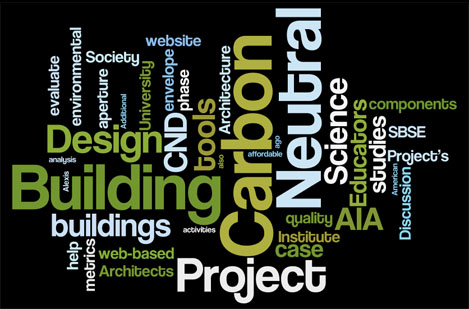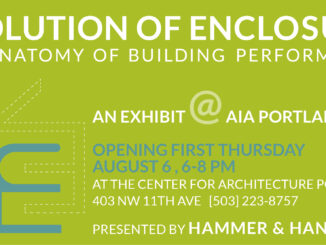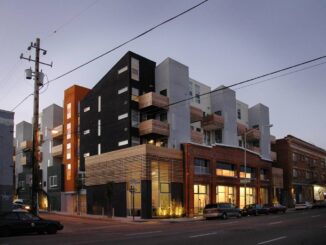
Two years ago, the Society of Building Science Educators* (SBSE) partnered with the American Institute of Architects’ (AIA) Committee on the Environment (COTE), Educator/Practitioner Network, and Sustainability Discussion Group to spearhead the Carbon Neutral Design (CND) Project.
This year at the 2009 National AIA Convention, Dennis A. Andrejko, FAIA, moderated a discussion of the CND Project’s status with lead developers Alexis Karolides, AIA, of Rocky Mountain Institute, and Jim Wasley, AIA, of the School of Architecture and Urban Planning at the University of Wisconsin-Milwaukee. In its research and collaboration with 35 universities, the CND Project team has developed web-based tools to evaluate whole building carbon emissions. While the first phase focused on commercial and institutional buildings, the second phase starting this summer will include affordable housing projects.

The upcoming CND Project website, currently in beta development, will have 3 components: tools and resources, building case studies, and design studio case studies. The website will require one to download a project’s specifications and utility usage information. The tools, which are made up of multiple metrics, would then evaluate different components of the project, ranging from site analysis to building envelope characteristics such as aperture distribution (the ratio of glazing to occupied square feet, and the percentage of fixed versus operable windows). Additional metrics will analyze the aperture control of solar gains, daylighting, natural ventilation, mechanical ventilations, and so forth.
Buildings in the United States consume at least 40% of the energy consumption. The CND Project’s database of case studies and web-based tools promise to be a powerful resource. It will provide tools for architects and engineers to design better buildings and minimize environmental impacts. Can we make our projects carbon neutral and meet the 2030 Challenge?
The Society of Building Science Educators (SBSE) is an association of university educators and practitioners in architecture and related disciplines who support excellence in the teaching of environmental science and building technologies. SBSE’s goal of promoting and supporting quality instruction in building science is realized through a broad range of practical activities.





Be the first to comment